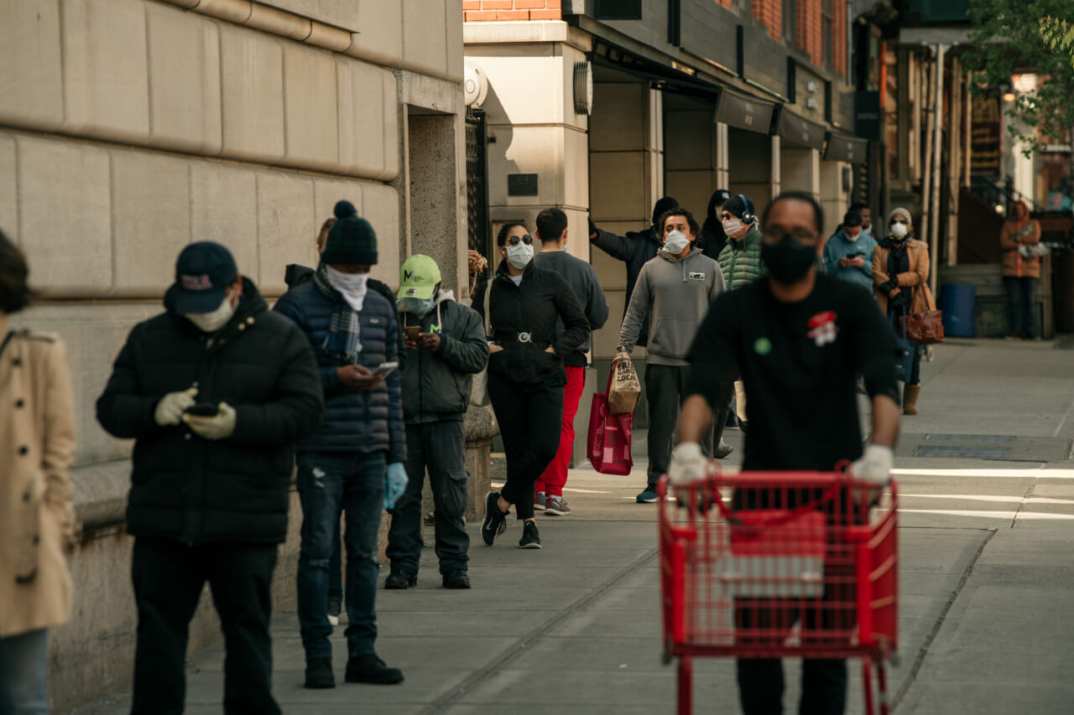Black grocery workers say they feel vulnerable working during the pandemic
Workers of color often cannot work from home and are in jobs made riskier by COVID-19.

It’s no secret that the COVID-19 has adversely impacted the Black community worse than many others in this country, but now Black employees at retail and grocery stores are opening up about the terror they experience when they leave their homes to work as essential employees.
“I’m up front and center with a lot of customers,” Pam Hill, a cashier at Albertsons in Los Angeles and a member of the United Food and Commercial Workers union, explained to CNN. “It’s nervous times for us.”
READ MORE: Coronavirus may spread on shoes, study says
Hill recalled how at first the customers who frequented her store didn’t take the coronavirus seriously due to a persistent rumor that Black people were immune to the virus. But once that myth was debunked and two workers at her store tested positive for COVID-19 things quickly changed.
“We were being misinformed to think it doesn’t affect us,” she admitted. “And it does — greatly.”
Grocery stores are among the few public spaces still open, and they are disproportionately staffed by Black employees in many states. At least 41 grocery store workers have died nationwide reports the Washington Post.
Grocery store chains like Acme are making concessions to protect workers by adding plastic shields at checkout lines and allowing workers to wears face coverings like at Trader’s Joes, which reversed their previous policy.
Tuesday, McKinsey released a report that explains, “Black workers are putting their lives and health on the line to provide goods and services that matter to our society.”
READ MORE:
FACT: Some 29% of white workers are able to work at home, according to the Economic Policy Institute. But less than one in five black workers and roughly one in six Hispanic workers are able to work from home. https://t.co/pi6Wll0lW2
— Poppy Harlow (@PoppyHarlowCNN) April 15, 2020
“Blacks and Latinos are disproportionately in low-wage jobs. And amongst those are retail,” agreed Steven Pitts, associate chair of the Center for Labor Research and Education at the University of California, Berkeley. “To the extent that you want workers to shelter in place, the capacity to shelter in place is racially shaped.”
New Orleans Saints player Malcolm Jenkins, who spent the last few seasons as an outspoken member of the Philadelphia Eagles, recently urged Black Americans to stop waiting on the government and become self-reliant during the coronavirus pandemic.
READ MORE: Saints star Malcolm Jenkins warns Black people not to rely on government in COVID-19 crisis
In Chicago, 72% of the city’s virus deaths are Black people, even though they only make up 30% of the city’s population. And several Black grocery store employees have already died from the coronavirus, including Phillip Thomas, a 48-year-old Walmart employee in Evergreen Park, Illinois.
“He left work because he got sick. He was a diabetic,” said his sister Angela McMiller.
“We’re seeing the legacies of the immediate past and the historical past,” said Pitts. “You don’t have a racist virus. But you’re landing into arenas of American life that are heavily racialized. And that’s why you see the disparate impacts.”
